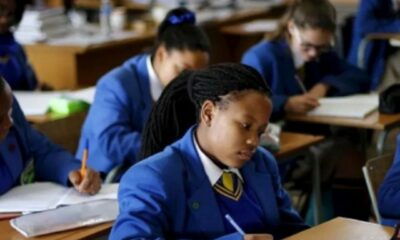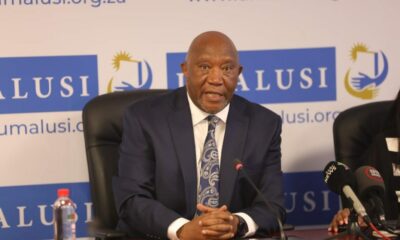News
70% of South African children in Grades 1–3 struggle to read or recognise letters, new study reveals

A Sobering Truth About South Africa’s Early Reading Crisis
South Africa’s literacy crisis has once again taken centre stage and this time, the numbers are more alarming than ever. A new Department of Basic Education study has revealed that seven out of ten children in Grades 1 to 3 cannot recognise letters or read words quickly enough to understand them.
The finding comes from the Funda Uphumelele national survey, the first large-scale study to measure early-grade reading outcomes in all 11 official languages. It paints a worrying picture of how children are struggling long before they reach the critical Grade 4 milestone, where reading shifts from “learning to read” to “reading to learn.”
A Wake-Up Call for Early Education
Minister of Basic Education Siviwe Gwarube, who launched the report in Pretoria this week, called for a renewed focus on early learning and comprehension.
“We cannot wait until Grade 4 to address reading challenges,” Gwarube said. “By then, it’s often too late, the foundation must be built earlier.”
For the past seven years, the department has been developing reading benchmarks for every language and grade in the Foundation Phase. These benchmarks are meant to identify what skills a child should master by the end of Grades 1, 2, and 3 to ensure they can understand what they read by Grade 4.
Only Three in Ten Learners Meet Expectations
According to Nompumelelo Nyathi Mohohlwane, the department’s director for reading, just 30% of learners in early grades are reading at the expected level for their age.
She said the purpose of the survey is to clarify key milestones in children’s reading development and to help schools detect learning difficulties early on.
“We want to enable early identification of children at risk, support targeted remediation, and help teachers guide differentiated instruction,” Mohohlwane explained.
The data also shows that by Grade 4, only 46% of learners have reached the language comprehension goals expected of Grade 3 pupils, a gap that becomes harder to close as children advance through school.
Why This Matters Beyond the Classroom
Education experts say the results are not just about reading they are about future opportunity. Without strong literacy skills, learners struggle in all subjects, affecting their ability to progress, graduate, and find employment later in life.
In many South African classrooms, particularly in rural and township schools, overcrowded classes, limited access to reading material, and instruction in a child’s non-home language all contribute to the crisis.
The Funda Uphumelele study is a first step in changing that offering educators, parents, and policymakers a national mirror that’s hard to ignore.
Public Reaction: Concern and Calls for Action
On social media, parents and teachers have expressed a mix of concern and frustration. Some educators argue that while reading programs exist, implementation and teacher support remain inconsistent across provinces. Others are calling for more community-driven reading initiatives, especially in mother tongues.
A Limpopo teacher wrote on X (formerly Twitter):
“We are trying, but we need more books, more training, and fewer learners per class. You can’t teach 50 children to read in 30 minutes.”
Meanwhile, education NGOs have urged the government to turn the findings into urgent policy action rather than another report that gathers dust.
A Way Forward
The Funda Uphumelele findings have reignited discussions about how to close the literacy gap from strengthening teacher training and home reading habits to making reading fun and accessible in every language.
While the data is bleak, Mohohlwane says it offers a roadmap.
“This study is not about blame. It’s about identifying where we are and where we must go.”
South Africa’s literacy challenge is complex, but the solution begins with one simple truth: every child deserves the chance to understand the world through words and that journey starts long before Grade 4.
{Source: EWN}
Follow Joburg ETC on Facebook, Twitter , TikTok and Instagram
For more News in Johannesburg, visit joburgetc.com



























